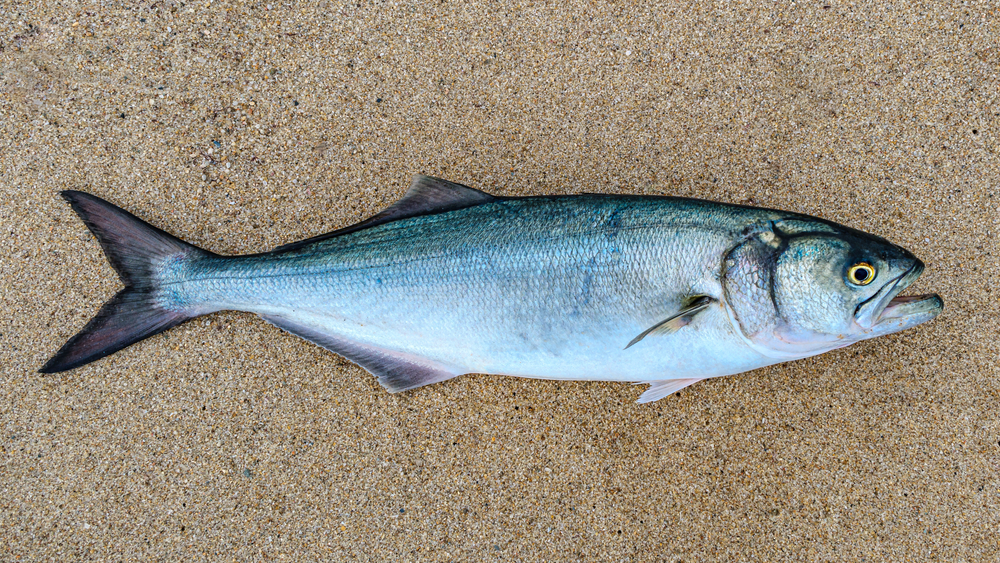States Without Professional Sports Teams: The Sports Deserts of America
States without professional sports teams
Professional sports are deep weave into the cultural fabric of the United States. From the roar of NFL stadiums on Sunday afternoons to the crack of baseball bats in summer evenings, professional sports teams oftentimes serve as rallying points for communities. Nonetheless, not all states have the privilege of host a professional sports franchise from the” big four” leagues — the national football league (NFL), major league baseball (MLB), National Basketball Association (NBA), and national hockey league (NHL).
Presently, 19 states do not have a team in any of these major professional sports leagues. This absence create what some call” sports deserts”—regions where fans must travel significant distances to watch top tier professional games in person.
The states without professional sports teams
The following states presently do not have any teams in the NFL, MLB, NBA, or NHL:
1. Alabama
Despite being a powerhouse in college football with the university of Alabama and auburn university, Alabama lack professional teams. The state’s passionate college sports culture has maybe reduced the perceive need for professional franchises. Birmingham has occasionally been mention as a potential expansion city for various leagues.
2. Alaska
Alaska’s remote location, small population, and challenging climate make it difficult to sustain a major professional team. The significant travel distances would create logistical challenges for any franchise base thither. Nonetheless, Alaska does have a strong hockey culture at the amateur and semi-professional levels.
3. Arkansas
Arkansas have strong support for college athletics, peculiarly the Arkansas razorbacks, but has not attract professional teams. The state’s comparatively small metropolitan areas make it challenge to support the financial demands of major league franchises.
4. Connecticut
While Connecticut antecedently host the NHL’s Hartford whalers (nowadays the cCarolina Hurricanes) it presently lalacksajor professional teams. The state’s proximity to nNew Yorkand bBostonmean many residents support teams from those markets. Connecticut does host the wWNBAs cConnecticutsun.
5. Delaware
As one of the smallest states, Delaware lack the population base typically need to support major professional teams. Most Delaware sports fans follow Philadelphia teams, as the state is within the Philadelphia media market.
6. Hawaii
Hawaii’s isolated geographic position create significant travel challenges for any potential professional team. The islands host the NFL pro bowl and various professional golf tournaments but have not secure a permanent professional franchise.
7. Idaho
Idaho’s comparatively small population centers have not attract major league franchises. Boise, the largest city, host minor league teams include the Boise hawks (baseball )and idIdahoteelheads ( (ckey ).)
8. Iowa
Iowa has a rich sports tradition but lack major professional teams. The state have minor league baseball teams and the nNBAg league’s iIowawolves. College sports, especially the iIowa Hawkeyesand iIowastate cyclones, dominate the sports landscape.
9. Kansas
While Kansas technically doesn’t have a team within its borders, the Kansas City chiefs (nNFL)and kaKansas Cityoyals ( (bMLB)ay in missMissouri represent both states. Many consider kansKansashave professional representation through these teams.
10. Kentucky
Kentucky is known for college basketball, with the university ofKentuckyy andUniversity of Louisvillee programs. Louisville antecedently host theABAa’sKentuckyy colonels before theABAaNBAa merger, but presently have no major professional teams.
11. Maine
Maine’s comparatively small population and northern location have kept it off the radar for major league expansion. The state have minor league teams like the Maine mariners (eECHLhockey )and poPortlandea dogs ( (uble a baseball ).)
12. Mississippi
Mississippi has a strong college sports tradition but has not attract professional franchises. The state’s smaller metropolitan areas and economic challenges have limit opportunities for professional teams.
13. Montana
Montana’s small, dispersed population make it difficult to support major professional teams. The state embrace outdoor recreation and college sports, with Montana state and university of Montana have strong followings.

Source: thesportsground.com
14. Nebraska
Nebraska’s sports culture centers around the university of Nebraska Cornhuskers. Omaha hosts the college world series yearly but has not secure a major professional franchise.
15. New Hampshire
New Hampshire’s proximity to Boston mean most residents support Boston teams. The state’s smaller population centers have not attract major league interest.
16. New Mexico
New Mexico have minor league teams include the Albuquerque isotopes (triple a baseball )and neNew Mexiconited ( (lusampionship soccer ) b) no major league franchises. The state’s largest city, albuqAlbuquerquesmaller than typical major league markets.
17. South Carolina
South Carolina share the NFL’s Carolina Panthers with North Carolina, but the team play in charlotte, NC. The state have strong college programs like Clemson and the university of South Carolina but no major league teams within its borders.
18. South Dakota
South Dakota’s small population make it challenge to support major professional sports. The state focus on outdoor sports and have some minor league and semi-professional teams.
19. Vermont
Vermont’s small population and rural character have kept it from attract professional teams. The state have a strong winter sports culture but no major professional franchises.
20. Virginia
While Virginia doesn’t have a major league team play within its borders, the Washington commanders (nNFL)practice in asAshburnviVirginiaand many viVirginiansonsider waWashington.c. team their home teams. Richmond and noNorfolkave occasionally been mention as potential expansion cities.
21. West Virginia
West Virginia’s mountainous terrain and smaller cities have not attract professional franchises. The state’s sports culture centers around college teams, especially West Virginia university.
22. Wyoming
Wyoming has the smallest population of any state, make it challenge to support major professional sports. The university of wWyomingcowboys are the state’s primary sports focus.
Why some states lack professional teams
Several factors contribute to why these states don’t have major professional sports franchises:
Population and market size
Professional sports franchises typically require large metropolitan areas with substantial population bases to support ticket sales, merchandise, and local television contracts. Many states without teams have smaller populations or lack major metropolitan areas that can financially sustain professional franchises.
For example, Wyoming have fewer than 600,000 residents statewide — less than many individual neighborhoods in large cities that host multiple teams. Yet in more populous states without teams, the population may be distributed across smaller cities quite than concentrate in major metropolitan areas.
Geographic considerations
Location plays a crucial role in franchise viability. States likeAlaskaa andHawaiii face obvious challenges due to travel distances and time zone differences. Teams base in these locations would face exhaust travel schedules and higher operational costs.
Yet in the continental United States, some states are position in ways that make them less attractive for league expansion. States near exist major markets frequently have residents who already support established teams, potentially limit the fan base for a new franchise.
Economic factors
Building and maintain professional sports venues require substantial investment, much in the hundreds of millions or billions of dollars. States with smaller tax bases or economic challenges may struggle to finance stadium construction or provide the incentives typically demand by team owners.
Corporate presence besides matter importantly. Professional teams rely intemperately on corporate sponsorships, luxury box sales, and other business partnerships. States with fewer large corporations headquarter within their borders may struggle to generate the necessary corporate support.
Competition from college sports
Many states without professional teams have passionate college sports cultures. In Alabama, Nebraska, and Kentucky, college teams function virtually like professional franchises in terms of fan support, media coverage, and cultural significance.
This strong college sports tradition can potentially reduce the perceive need for professional teams, as sports fans already have established loyalties and outlets for their enthusiasm.
How fans cope without local teams
Residents of states without professional teams have developed various ways to maintain their connection to professional sports:
Support regional teams
Many fans adopt teams from nearby states as their own. For example, sports enthusiasts in southern Idaho frequently support teams from Salt Lake City, while those in Delaware typically follow Philadelphia teams.
These regional affiliations oftentimes become deep ingrained across generations, with family loyalties to out of state teams pass down from parents to children.

Source: wbsnsports.com
Minor league and alternative professional sports
Minor league teams provide live professional sports experiences in many states without major league franchises. Triple a baseball, the ECHL or AHL in hockey, the g league in basketball, and various professional soccer leagues offer high quality competition at more affordable prices.
These teams oftentimes develop strong community connections and provide family friendly entertainment options. For example, the Albuquerque isotopes (triple a baseball )and idIdahoteelheads ( (hECHLckey ) )ve loyal followings in their communities.
College sports dominance
In many states without professional teams, college sports fill the void. The university of Alabama football program, university of Kentucky basketball, and Nebraska Cornhuskers function nigh like professional franchises in terms of fan support, facilities, and media attention.
These college programs oftentimes unite entire states behind them and create traditions and cultural touchpoints similar to what professional teams provide elsewhere.
Potential future expansion
As professional sports leagues consider expansion, some states presently without teams may finally join the ranks of those with major league franchises:
Likely candidates
Virginia and Kentucky have been mention as potential expansion locations for various leagues. The Hampton roads region of Virginia have a significant population base that could potentially support a team, while Louisville has occasionally been discussed as a potentiaNBAba market.
Alabama, with its passionate sports culture and grow cities like Birmingham, could finally attract league interest, especially from MLS or potentially the NBA.
Emerge sports
While the traditional” big four ” eagues may not expand to all states, emerge professional sports like maMajor League Soccer (sMLS)ational women’s soccer league ( nw( WSLr)ier lacrosse league, and various esports leagues offer additional opportunities for professional sports presence.
These leagues oftentimes have different economic models and facility requirements that might make them viable in markets that couldn’t support a nNFLor mMLBteam.
The cultural impact
The absence of professional teams shapes sports culture in affected states in unique ways:
Diverse fandom
Without a local team to unite hindquarters, residents of states without professional franchises oftentimes develop diverse team loyalties. In a single community, you might find fans of multiple different NFL or MLB teams, create interesting dynamics during playoffs and championships.
Travel traditions
For many families in states without teams, travel to professional sporting events become a special tradition. Annual trips to see a favorite team play can become cherish family experiences and rites of passage.
Unique sports identity
Many states without professional teams develop unique sports identities center around college athletics, outdoor recreational sports, or distinctive local sporting traditions. Montana’s fly-fishing culture, Vermont’s skiing heritage, and Alabama’s college football passion are examples of these alternative sports identities.
Conclusion
While 19 states presently lack representation in the major professional sports leagues, this absence doesn’t inevitably indicate a lack of sports culture or enthusiasm. In many cases, these states have vibrant sports traditions center around college athletics, minor league teams, or regional professional affiliations.
The landscape of professional sports continues to evolve, with emerge leagues, change population patterns, and new economic models potentially bring professional teams to some of these states in the future. Until so, sports fans in these regions will continue to find creative ways to will maintain their connection to the games they’ll love, whether by will travel to games, will support minor league teams, will embrace college sports, or will adopt teams from neighboring states.
The absence of professional teams has not diminished the sports passion in these states — in many cases, it’s but channel that enthusiasm in different, and sometimes yet more community orient, directions.



